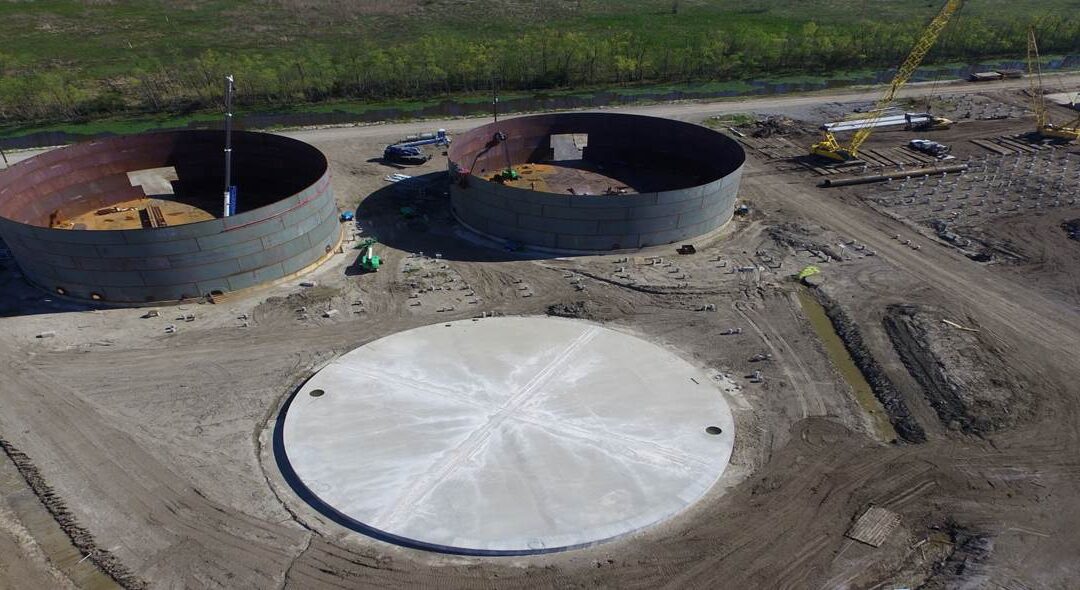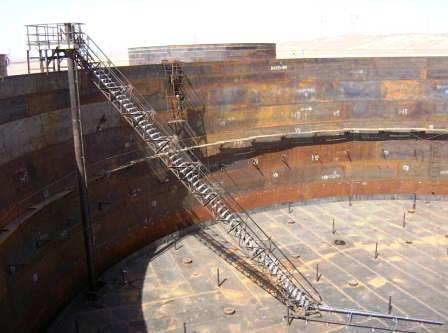The Advantages of Welding Evaluation for Enhanced Safety and Performance
Welding examinations are important for ensuring that structures fulfill rigorous market requirements. They play an important function in determining defects early, thereby boosting security and minimizing the risk of catastrophic failings. Furthermore, these evaluations can lead to substantial expense savings by preventing pricey repair services and downtime. As organizations go for enhanced performance and integrity, the value of a robust examination process can not be overemphasized. What other benefits might arise from a commitment to comprehensive welding inspections?
Making Sure Compliance With Market Criteria
Assuring compliance with market requirements is essential for preserving quality and safety and security in welding projects. Complying with established protocols not just safeguards employees but likewise boosts the sturdiness and efficiency of the end product. Welding examinations performed at different phases of the process assistance recognize any kind of variances from these criteria, enabling prompt rehabilitative actions. This positive strategy mitigates the threat of failures that might arise from low quality craftsmanship.
In addition, compliance with industry requirements cultivates depend on amongst stakeholders, consisting of clients, regulatory bodies, and the workforce. It signifies a commitment to excellence and responsible techniques, which can bring about increased company chances and an one-upmanship out there - API 650 Welding Inspection. Routine assessments additionally guarantee that materials and methods used align with the most recent technological developments and safety and security regulations. Inevitably, adherence to sector criteria is not merely a regulatory need yet a foundation of quality control in welding tasks
Enhancing Security With Early Detection of Issues
While the key objective of welding assessments commonly centers on compliance, they play an important role in enhancing safety and security by making it possible for the early detection of issues. Recognizing problems such as incomplete blend, fractures, or porosity during inspections can substantially alleviate the risk of catastrophic failings. Early detection enables timely treatments, guaranteeing that faulty welds do not endanger structural honesty.
Furthermore, systematic examinations promote a society of security within organizations by highlighting the significance of quality assurance. This positive strategy not only shields workers yet likewise safeguards the surrounding setting. Regular examinations can reveal fads in defect occurrence, permitting changes in welding methods and training programs to address underlying problems.
Welding inspections serve as an important safeguard, reinforcing general safety and security and performance by identifying issues before they rise right into severe risks. This dedication to quality straight adds to the durability and integrity of bonded structures.
Decreasing Expenses by Stopping Failures
By applying extensive welding assessments, companies can properly lower costs associated with failures and remodel. The aggressive recognition of issues throughout the welding procedure decreases the threat of tragic failings that can bring about expensive fixings or substitutes. Early discovery permits prompt interventions, which stops the acceleration of minor problems right into major problems that strain sources and budget plans. Furthermore, by guaranteeing that welds meet specified criteria, companies can prevent delays in project timelines created by the demand for substantial rework or extra assessments later on in the procedure. This not just conserves money but additionally boosts operational efficiency. Furthermore, a credibility for quality handiwork can cause enhanced consumer contentment and repeat company, further adding to financial security. In general, spending in welding assessments is a strategic technique that fosters expense savings while guarding the integrity of bonded frameworks.
Improving Performance and Long Life of Structures


Welding evaluations play a necessary duty in enhancing the performance and durability of structures, as they verify that welds are implemented to click resources the highest requirements. By determining flaws early in the welding procedure, inspections stop weak points that can endanger architectural integrity. This aggressive method warranties that the products made use of fulfill called for requirements, therefore maximizing their load-bearing ability and strength.
In addition, regular surveillance of welding techniques adds to the general high quality of building jobs. When welds are confirmed for compliance with industry standards, the possibility for tiredness and failure in time is significantly reduced. Frameworks that are built with effectively evaluated welds are likely to experience fewer upkeep problems and enhanced durability.
Ultimately, extensive welding evaluations not just reinforce the prompt efficiency of a structure however also prolong its operational life expectancy, providing long-lasting value to both building contractors and end-users alike.
Cultivating a Culture of Top Quality and Reliability
A dedication to top quality and dependability in welding techniques significantly adds to the overall success of building tasks. When organizations prioritize these values, they promote a society that urges meticulous interest to information and adherence to market criteria. This society not just enhances the skill level of welders however additionally promotes responsibility and synergy among all stakeholders entailed in the task.
Regular welding evaluations function as a foundation in this social shift, reinforcing the importance of consistent efficiency and precaution (API 650 Welding Inspection). By implementing strenuous examination methods, firms can recognize possible problems early, mitigating dangers and avoiding costly rework. Furthermore, a concentrate on top quality and dependability instills confidence amongst customers and partners, causing stronger relationships and boosted track records
Inevitably, cultivating a culture of high quality and integrity in welding practices not only elevates task results but additionally ensures long-term sustainability and success in the building and construction industry.
Regularly Asked Concerns
What Credentials Should a Welding Examiner Have?
A welding inspector must possess appropriate qualifications, such as AWS CWI or CSWIP. Additionally, they must have experience in metallurgy, welding procedures, and evaluation methods, in addition to strong analytical abilities and interest to detail for efficient examinations.

Exactly How Commonly Should Welding Inspections Be Performed?
Welding examinations should be conducted routinely, ideally after each considerable stage of the welding process. Additionally, periodic inspections should occur based upon task needs, solution problems, and regulative requirements to ensure ongoing quality and safety.
What Devices Are Made Use Of Throughout Welding Inspections?
Welding assessments use various devices, consisting of ultrasonic testers, magnetic fragment testers, aesthetic assessment tools, and radiographic equipment. Each device offers a particular purpose, ensuring weld top quality and architectural integrity through thorough exam and analysis.
Can Welding Inspections Be Done Remotely?
Welding inspections can without a doubt be done remotely making use of sophisticated technologies such as drones and specialized electronic cameras. These tools enable examiners to evaluate welding quality and stability from a distance, boosting efficiency and safety and security in different environments.
What Are the Typical Kinds Of Welding Flaws?
Common kinds of welding problems consist of porosity, cracks, read what he said insufficient fusion, damaging, and slag inclusion. These flaws can compromise the stability and strength of welds, causing potential failures in architectural applications if not attended to properly.
Welding assessments are important for making certain that frameworks satisfy rigorous industry requirements. Welding inspections performed at different phases of the procedure help determine any kind of deviations from these requirements, making it possible for timely corrective activities. Welding examinations play an important function in boosting the performance and durability of frameworks, as they validate that welds are implemented to the highest standards. Welding assessments need to be performed routinely, ideally after each considerable stage of the welding procedure. our website API 650 Welding Inspection. Welding examinations utilize various tools, including ultrasonic testers, magnetic particle testers, visual evaluation tools, and radiographic devices